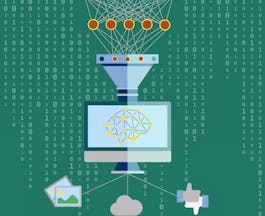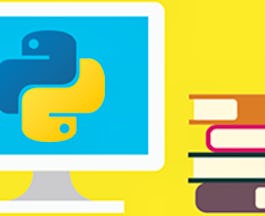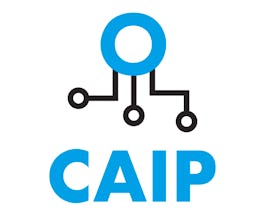Filter by
The language used throughout the course, in both instruction and assessments.
4,048 results for "artificial intelligence"

University of Washington
Skills you'll gain: Machine Learning, Algorithms, Machine Learning Algorithms, Human Learning, Applied Machine Learning, Statistical Machine Learning, Python Programming, Probability & Statistics, Regression, Data Analysis, Machine Learning Software, Mathematics, Problem Solving, Computer Programming, Decision Making

Duke University
Skills you'll gain: Artificial Neural Networks, Machine Learning, Natural Language Processing, Python Programming, Regression

Skills you'll gain: Machine Learning, Algorithms, Data Analysis, Human Learning, Python Programming, Regression

Skills you'll gain: Machine Learning, Training, Data Analysis, Deep Learning, Software Testing

University of London
Skills you'll gain: Algorithms, Artificial Neural Networks, Deep Learning, Human Learning, Machine Learning, Machine Learning Algorithms, Statistical Machine Learning, Applied Machine Learning, Decision Making, Feature Engineering, Training

Politecnico di Milano
Skills you'll gain: Machine Learning, Leadership and Management, Algorithms, Machine Learning Algorithms, Human Computer Interaction, Human Learning, Regulations and Compliance, Reinforcement Learning, Computational Thinking, Critical Thinking, Strategy, Planning

Skills you'll gain: Business Intelligence, Data Analysis, Data Management, Data Model, Data Visualization, Extract, Transform, Load, Leadership and Management, Strategy, Tableau Software

DeepLearning.AI
Skills you'll gain: Machine Learning, Natural Language Processing, Python Programming, Statistical Programming, Artificial Neural Networks, Probability & Statistics, Statistical Machine Learning, Deep Learning, Machine Learning Algorithms, Applied Machine Learning, Computer Programming, Human Learning, Mathematics

DeepLearning.AI
Skills you'll gain: Machine Learning, Calculus, Differential Equations, Mathematics, Machine Learning Algorithms, Regression, Algebra, Algorithms, Artificial Neural Networks, General Statistics, Linear Algebra, Probability & Statistics, Statistical Analysis

University of Pennsylvania
Skills you'll gain: Machine Learning, Data Analysis, Applied Machine Learning, Business Transformation, Decision Making, Human Learning, Machine Learning Algorithms, Regulations and Compliance, Strategy

Scrimba
Skills you'll gain: Computer Programming

Skills you'll gain: Python Programming, Data Science, Machine Learning, Data Analysis, Algorithms, Data Analysis Software, Data Management, Data Visualization, Human Learning, R Programming, Computational Thinking, Computer Programming, Database Application, Databases, Deep Learning, Exploratory Data Analysis, Machine Learning Algorithms, Plot (Graphics), Professional Development, SQL, Data Model, Statistical Machine Learning, General Statistics, Probability & Statistics, Regression, Reinforcement Learning, Big Data, Cloud Computing, Data Mining, IBM Cloud, Writing
Searches related to artificial intelligence
In summary, here are 10 of our most popular artificial intelligence courses
- Machine Learning: University of Washington
- Introduction to Machine Learning: Duke University
- Machine Learning with Python: IBM
- CertNexus Certified Artificial Intelligence Practitioner: CertNexus
- Machine Learning for All: University of London
- Artificial Intelligence: an Overview: Politecnico di Milano
- Google Business Intelligence: Google
- Natural Language Processing: DeepLearning.AI
- Mathematics for Machine Learning and Data Science: DeepLearning.AI
- AI Strategy and Governance: University of Pennsylvania










